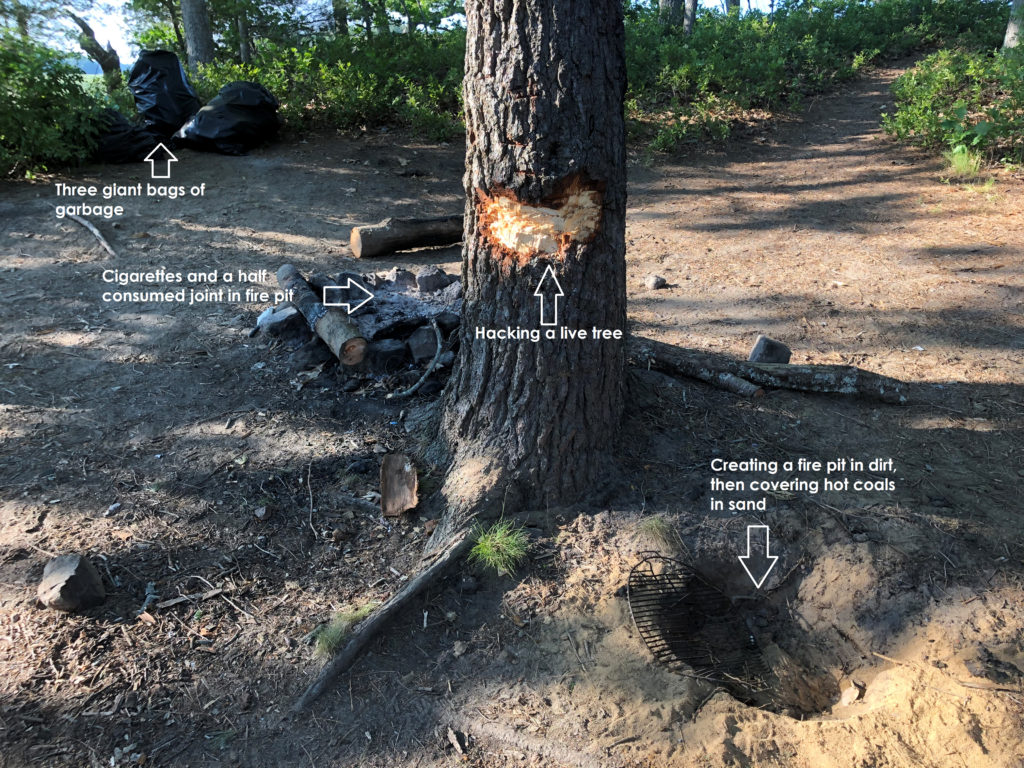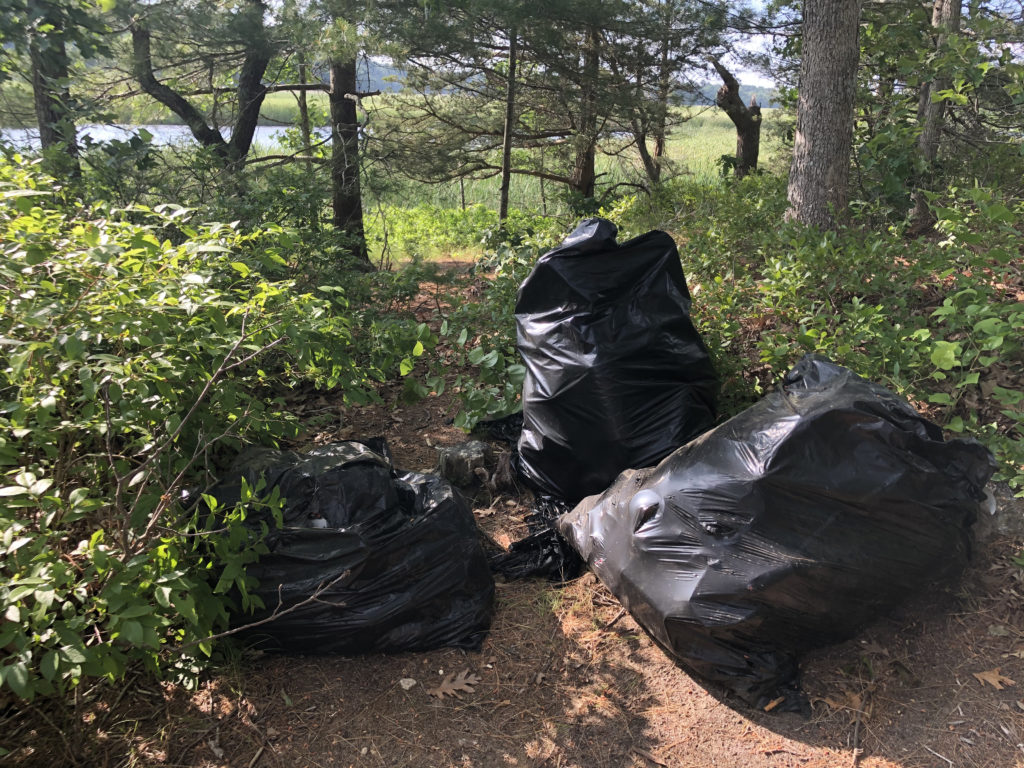By Geoff Gordon, NSRWA Board Member
I have enjoyed sleeping under the stars since my dad took me to Moosehead Lake when I was five. There’s something about the stars, the smells, a cozy fire, and often, good company, that makes camping outside memorable and special.
But camping in public wild space comes with responsibility, for the people who wish to enjoy the same experience later, plus the public at large. “Leave No Trace” is the experienced camper’s best practice. Leave the space as clean as you found it, or better yet, take out what earlier campers may have missed. It works really well in most places.
But not always.
Couch Beach and some small islands on the upper North River are suitable for camping with permits from the town of Marshfield. It’s great to have a small campfire and enjoy a burger and beer, and maybe a swim, in such a beautiful place. (To be clear, you’re required to get a Fire Permit from the Marshfield Fire Department to have campfires – don’t give them a reason to stop issuing these). This past week, however, I stopped at one to have a look around, since we’ve heard people out there on weekend nights.
The two pictures here have some lessons for the aspiring camper:
 Start with Fire Safety
Start with Fire Safety
Neither fire ring on this island should be here, as built. The main one (opposite side of the pine tree) is so close to the tree that the other side has been burned through its core. Further, it’s just a ring of stones. The soil underneath is full of detritus: roots and organic matter, which will smolder for days, or ignite the whole island if the fire isn’t extinguished fully. If you have a fire, be sure the entire bottom is lined with stones and deep enough sand to prevent smoldering undergrowth. Then extinguish when done. With lots of water. Stir till no steam emerges from the fire pit before leaving.
The campfire on this side of the pine tree was covered with sand. Sand will trap heat, helping to spread through to the detritus underneath. If it doesn’t spread underground, it still takes longer to extinguish than if you just left it, doing nothing. This campfire is on an island. Use water! Stir till no steam emerges from the fire pit before leaving. And remove your trash, like cigarette butts, joints, bottle caps, even from the fire pit.
Also, a camper hacked at this pine tree with an ax or hatchet, maybe to fell it and get more firewood? With two fire rings at its base already stressing it, this tree will probably die within a year…and remain as a standing dead tree. They call standing dead trees “widow-makers”, for good reason. Don’t hack at a live tree! It will never yield good firewood, even if you do manage to topple it. Some windy night that tree will fall, and much sooner once it’s dead.
 Trash
Trash
The previous camping party left three large bags of garbage, full of empties, wrappers, and all sorts of food leftovers. Good that the trash was bagged, not left all over the place. But there is no trash service on these islands! Take your own stuff out. Leave the campsite as good or better than you found it.
Wilderness camping is a wonderful way to connect with friends or to connect with the earth. Take ownership of these public spaces. It’s our responsibility, our legacy.
